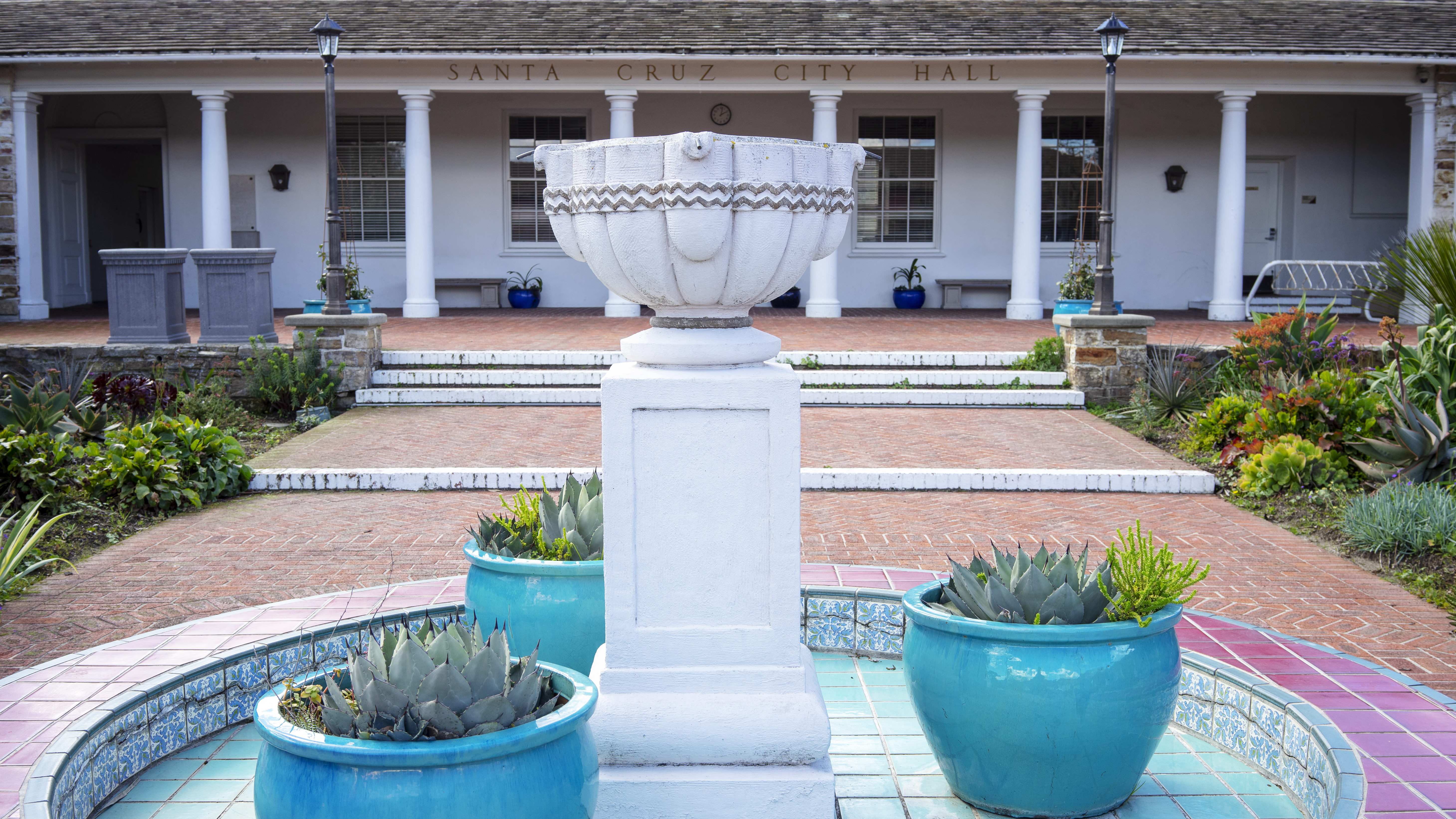Read Santa Cruz Local's Election Guide

Spurred by a structural deficit in the City of Santa Cruz’s finances, Measure F seeks to raise the city sales tax to the county limit of 9.75%. (Kara Meyberg Guzman — Santa Cruz Local file)
What is Measure F?
Measure F proposes to allow the City of Santa Cruz to raise its sales tax to 9.75%. The city’s current sales tax is 9.25%. Money from the tax hike would be added to the City of Santa Cruz’s General Fund.
A sales tax increase on groceries, medicine, diapers and feminine hygiene products are exempt from Measure F, according to the measure. Measure F needs more than 50% of the vote to pass, according to the county clerk. Measure F will be decided by voters in the City of Santa Cruz. The new tax is expected to start Oct. 1 if it is adopted by voters, said Santa Cruz city spokeswoman Elizabeth Smith.
What does a “yes” vote on Measure F mean?
A “yes” vote would allow the City of Santa Cruz to raise its sales tax to Santa Cruz County’s sales tax cap of 9.75%. A “yes” vote allows the increased sales tax revenue to go to the city’s General Fund. The General Fund pays for a variety of public services in the City of Santa Cruz.
The 0.5% sales tax raise would add 5 cents to an item that costs $10. It would add 50 cents to an item that costs $100.
What does a “no” vote on Measure F mean?
A “no” vote on Measure F would reject the city’s proposed sales tax hike and instead support the city’s current sales tax rate of 9.25%.
Things to consider about Measure F
Santa Cruz city leaders proposed Measure F largely because the city has a structural deficit. Its expenses are more than its revenue. Bobby Magee, Santa Cruz’s interim financial director, said in February that if the city continues its current expenditures without a sales tax hike, the city’s reserves will be drained by 2028.
Santa Cruz’s budget problems predate the pandemic and are partly caused by rising pension and health care costs for public employees, former city finance directors have said.
The city’s sales tax was increased by 0.25% in 2018. City voters approved that increase. Rising pension costs were among city leaders’ reasons for the 2018 sales tax increase.
If Measure F passes, the additional money will go to the city’s General Fund and help pay for services that include police, fire department, road maintenance and many other city services. The money is not restricted for any specific use.
The sales tax hike is estimated to generate $5.5 million in its first partial year that ends in July 2023. After that, it is estimated to bring in $8 million annually, according to the measure’s fiscal impact statement.
Proponents of Measure F have said the money could be used for services like mental health help, clean parks and affordable housing.
Opponents of Measure F said any sales tax hike is a regressive tax since it taxes people of all income levels equally. The greatest burden will be on low-income residents while higher-income residents will not feel the effects of the tax hike as acutely, opponents wrote.
Santa Cruz Local stories on Measure B
- Santa Cruz city deficit prompts potential sales tax hike – Feb. 8, 2022
- Santa Cruz sales tax hike stalls – June 23, 2021
- Santa Cruz sales tax hike, living wage proposals fail – Aug. 6, 2021
- Santa Cruz council could tackle sales tax proposal, living wage – July 16, 2021
- Rising pension costs in Santa Cruz: Your questions answered – June 4, 2021
—Allison Gasparini
Santa Cruz Local’s news is free. We believe that high-quality local news is crucial to democracy. We depend on locals like you to make a meaningful contribution so everyone can access our news. Learn about membership.
